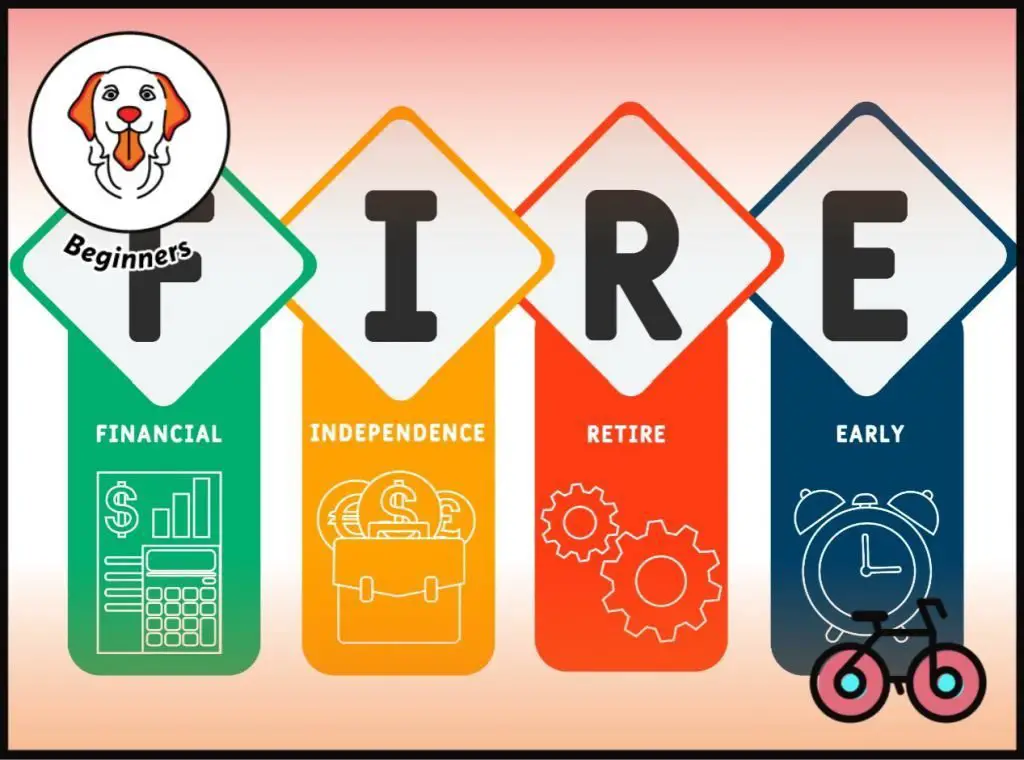Divorce is a challenging and emotionally turbulent process, no doubt. But when it comes to preparing yourself financially for this major life change, there are steps you can take to ensure stability and peace of mind. So, how to prepare financially for a divorce? In this article, we will dive into practical strategies and expert advice that can help you navigate the financial aspects of divorce with confidence and clarity. From understanding your assets and debts to creating a budget and seeking professional assistance, we’ve got you covered. Let’s embark on this journey towards financial preparedness together.
How to Prepare Financially for a Divorce
Divorce can be a challenging and emotional time, and it’s important to consider the financial implications as well. Preparing yourself financially for a divorce can help ensure that you are well-equipped for the journey ahead. In this article, we will guide you through important steps to take in order to prepare yourself financially for a divorce.
Gather and Organize Your Financial Documents
Before proceeding with a divorce, it’s crucial to gather and organize all your financial documents. This will help you have a clear picture of your financial situation and enable you to make informed decisions. Here are some key documents to gather:
- Income documents: Pay stubs, tax returns, and other sources of income.
- Asset documents: Property deeds, mortgage documents, bank statements, investment accounts, and retirement account statements.
- Liabilities documents: Credit card statements, loan documents, and any other outstanding debts.
- Insurance policies: Health, life, and auto insurance policies.
- Business documents: If you own a business, gather financial statements, tax returns, and any operating agreements.
Once you have collected these documents, organize them in a folder or a secure digital storage system. This will make it easier for you and your attorney to access and reference them throughout the divorce process.
Assess Your Financial Situation
Next, it’s crucial to assess your financial situation and determine your assets, liabilities, and income. Understanding your financial standing will help you plan for the division of assets and property during the divorce. Here are some steps to take:
- Calculate your net worth: Add up the value of all your assets and subtract your liabilities. This will give you an overall picture of your financial standing.
- Review your monthly budget: Evaluate your income and expenses to understand your cash flow and identify areas where you can cut back or make adjustments.
- Consider your financial goals: Think about your short-term and long-term financial goals. This will help guide your decisions during the divorce process.
Assessing your financial situation will not only help you plan for the divorce but also enable you to make decisions that align with your future financial goals.
Consult a Financial Advisor
Navigating the financial aspects of a divorce can be complex, and it’s wise to seek guidance from a financial advisor who specializes in divorce settlements. A financial advisor can help you understand the implications of various financial decisions and assist you in creating a post-divorce financial plan. Here’s how a financial advisor can support you:
- Assist in valuing assets: A financial advisor can help determine the fair market value of your assets, such as your home, investments, and retirement accounts.
- Evaluate settlement options: They can provide insights into different settlement options, such as lump sum payments or periodic alimony, and help you understand the tax implications of each option.
- Create a post-divorce budget: A financial advisor can work with you to create a budget that aligns with your new financial circumstances and helps you achieve your future financial goals.
- Provide long-term financial planning: They can help you plan for your future by considering factors like retirement savings, college funding for children, and insurance coverage.
Consulting a financial advisor can be a valuable investment during a divorce, as it can help you make informed decisions and set yourself up for financial stability in the future.
Protect Your Credit
During a divorce, it’s essential to protect your credit and maintain your financial standing. Here are some steps to take to safeguard your credit:
- Close joint accounts: If you have joint accounts with your spouse, consider closing them or removing your name from them. This will prevent any future financial entanglements.
- Monitor your credit: Regularly check your credit reports and scores to ensure there are no unauthorized accounts or discrepancies.
- Establish individual credit: If you don’t have independent credit, open individual accounts in your name to start building your credit history.
- Pay bills promptly: Continue paying bills on time to maintain a positive credit history.
Taking these steps will help protect your credit and ensure that it remains intact during and after the divorce process.
Update Your Estate Plan
Divorce often necessitates updates to your estate plan to reflect your new circumstances and wishes. Here are some aspects to consider:
- Review your will and trusts: Evaluate your existing will and trusts to ensure they are in line with your desired distribution of assets and beneficiaries.
- Update your power of attorney and healthcare proxy: If your spouse was previously designated as your power of attorney or healthcare proxy, update these documents to appoint new individuals.
- Update beneficiary designations: Review and update beneficiary designations on life insurance policies, retirement accounts, and other assets.
Consulting an estate planning attorney can provide you with the appropriate legal guidance when updating your estate plan.
Consider Child and Spousal Support
If you have children or will be seeking spousal support, it’s important to carefully consider these financial aspects during the divorce process. Here are some points to keep in mind:
- Child custody and support: Understand your rights and obligations regarding child custody and child support payments. Consult with your attorney to ensure the best interests of your children are taken into account.
- Spousal support: If you are entitled to spousal support or you may be required to pay it, consider the financial implications and work with your attorney to negotiate a fair agreement.
Understanding and planning for child and spousal support can help you make informed decisions that prioritize the well-being and financial stability of your family.
Keep Emotions Separate from Financial Decisions
Throughout the divorce process, emotions can run high, making it difficult to separate them from financial decisions. However, it’s crucial to approach financial decisions with a clear and rational mindset. Here are some strategies to help you keep emotions in check:
- Work with professionals: Rely on the expertise of your attorney, financial advisor, and any other professionals involved. They can provide objective advice and guide you through the process.
- Take time to make decisions: Avoid making impulsive financial decisions. Take the time to gather information, seek advice, and carefully consider the implications before making any major choices.
- Focus on your long-term goals: Keep your long-term financial goals in mind and make decisions that align with them. Remember that your decisions now will impact your financial future.
By separating emotions from financial decisions, you can ensure that your choices are based on practical considerations and serve your best interests in the long run.
In conclusion, preparing yourself financially for a divorce is an important step to navigate the process successfully. By gathering and organizing your financial documents, assessing your financial situation, consulting a financial advisor, protecting your credit, updating your estate plan, considering child and spousal support, and separating emotions from financial decisions, you can pave the way for a more stable financial future. Remember, seeking professional advice and support throughout the process is crucial to making informed decisions that protect your financial well-being.
How Do I Financially Prepare For Divorce?
Frequently Asked Questions
Frequently Asked Questions (FAQs)
How can I prepare financially for a divorce?
Preparing financially for a divorce involves several steps that can help you protect your assets and ensure a smoother transition. Here are some recommendations:
What documents should I gather to prepare for a divorce?
Collecting important documents is crucial when preparing for a divorce. Some essential documents to gather include:
How do I create a budget during the divorce process?
Creating a budget during the divorce process can help you manage your finances better. Follow these steps to create a budget:
Should I hire a financial professional to assist with my divorce?
While not mandatory, hiring a financial professional during a divorce can offer various benefits. Consider the following factors:
What steps can I take to protect my credit during a divorce?
Protecting your credit is important during a divorce. Here are some steps you can take to safeguard your credit:
How can I determine the value of shared assets and debts?
Evaluating shared assets and debts is necessary for a fair division during a divorce. Follow these steps to determine their value:
What should I consider when negotiating a settlement agreement?
When negotiating a settlement agreement, it’s important to consider various factors that can impact your financial future. Keep in mind:
Do I need to update my beneficiary designations after a divorce?
Yes, updating your beneficiary designations after a divorce is essential to ensure your assets are distributed as intended. Remember to:
How can I protect my financial interests during divorce proceedings?
Protecting your financial interests during divorce proceedings requires careful planning and proactive steps. Consider these recommendations:
Final Thoughts
When going through a divorce, it is crucial to be prepared financially. Begin by gathering important financial documents like bank statements, tax returns, and investment records. Assess your current financial situation and create a budget to understand your expenses and income. Consider consulting a financial advisor to help navigate complex financial matters. It’s important to protect your credit by closing joint accounts and separating your finances. Be aware of any potential tax implications and update your estate planning documents. By taking these steps, you can effectively prepare yourself financially for a divorce.



